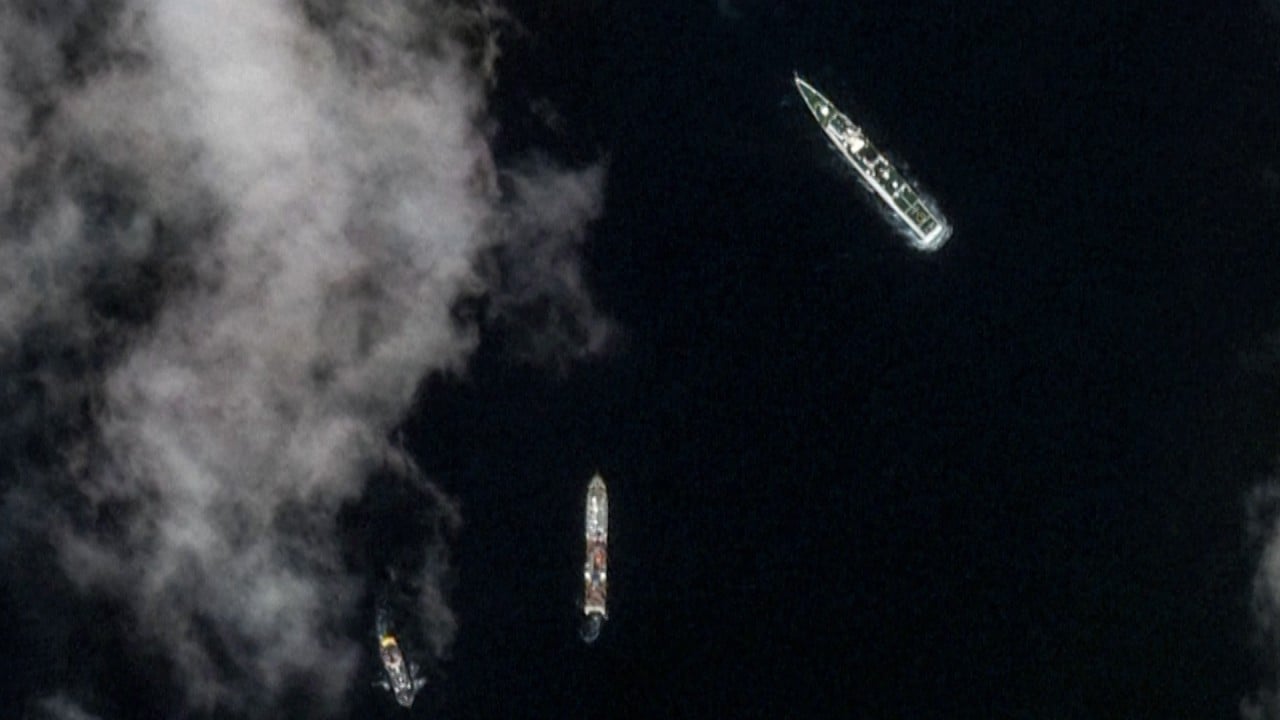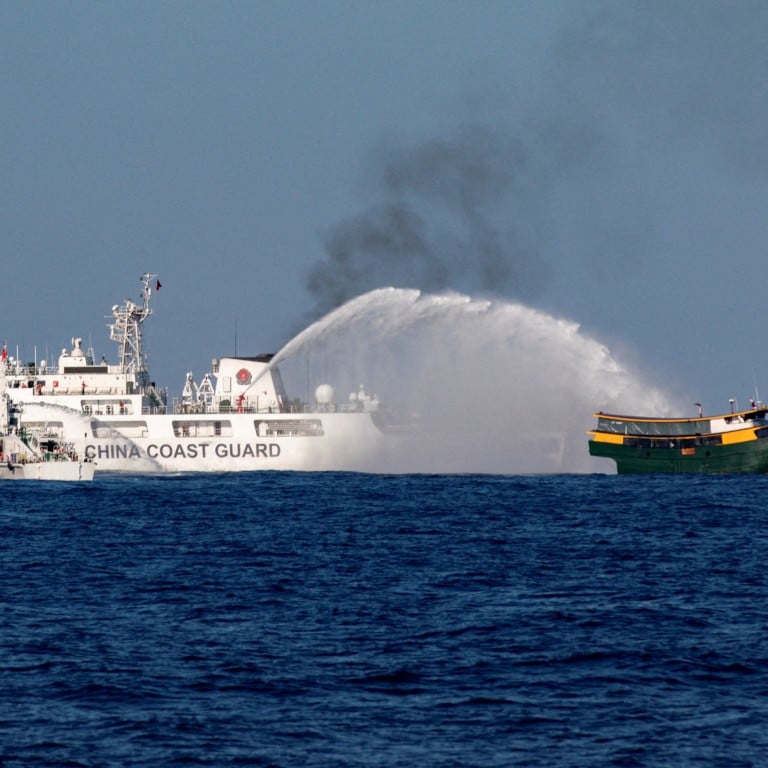
Duterte-Xi pact: how Philippines’ domestic politics can affect management of South China Sea tensions
- Shifting gears on foreign relations brought by leadership change may bear on how a country’s commitment to deals is viewed by other disputants
- This may also make Filipino leaders less keen to explore progressive arrangements in the South China Sea, for fear of political backlash at home
Retired Supreme Court Associate Justice Antonio Carpio called the deal a “disguised surrender” of the country’s sovereign rights within its exclusive economic zone. Senator Ana Theresia Hontiveros called it “treasonous” and asked for an inquiry.
The covenant allegedly entails Manila agreeing not to send construction materials to reinforce its outpost – a corroding beached ship – in the low-lying Second Thomas Shoal. Detractors point to it as abandoning the weathered vessel to the elements, which plays into Beijing’s hands.
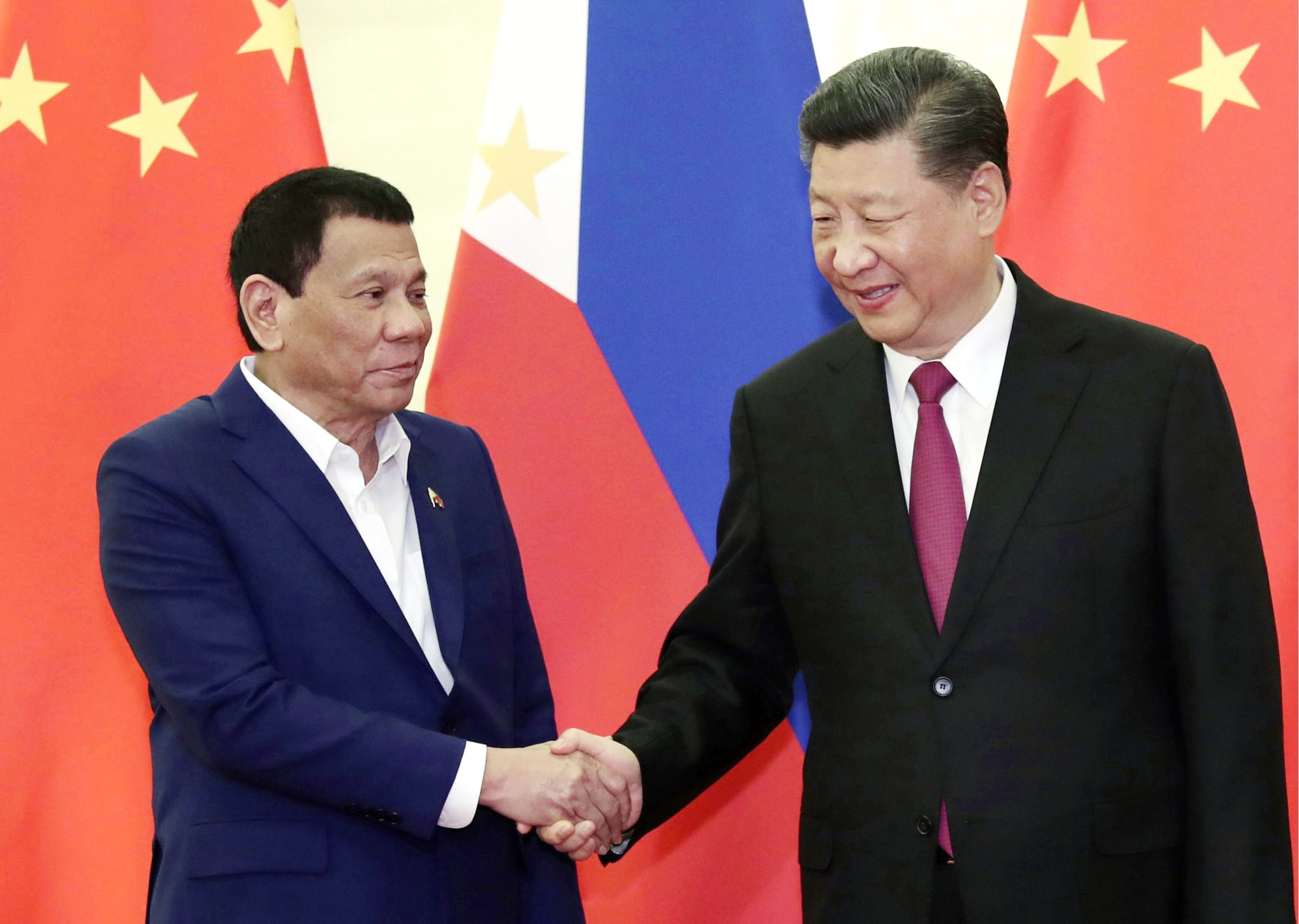
Senate Foreign Affairs Committee Chair Maria Imelda Josefa Remedios Marcos, who is also President Ferdinand Marcos Jnr’s sister, said however that such reaction was exaggerated and that such talks were practical.
The range of views on the unwritten understanding shows how domestic politics affects foreign policy. Shifting gears on foreign relations brought by leadership change may bear on how a country’s commitment to deals is viewed by other disputants. The high political cost of such “agreements” may inhibit interest in interim or practical arrangements.
This is especially so for a rowdy democracy like the Philippines, which attaches high salience to the maritime row relative to other littoral states including Indonesia, Malaysia and Brunei.
Such sharp pendulum swings reveal the short time frame of Philippine foreign policy. This may affect how other nations view Manila, especially concerning long-standing disputes such as the South China Sea issue. It may condition the kind of arrangements other parties may enter with the country, given the risk of possible policy reversals after six years.
The embarrassment of subjecting delicate inter-state negotiations to domestic political intramurals may also make other countries cautious in dealing with the country regarding sensitive issues.
In 2012, then president Benigno Aquino III tapped then senator Antonio Trillanes IV to serve as the country’s back-door negotiator to defuse tensions over Scarborough Shoal.
While the lawmaker was able to reduce the number of Chinese ships in the contested reef, his involvement was not received well by the late foreign affairs secretary Albert del Rosario, as well as Senate President Juan Ponce Enrile. His dialogue with Chinese officials was met with suspicion, and the former navy captain was accused of treason and espionage, charges later dismissed by the Ombudsman in 2017.
Trillanes claimed that del Rosario undermined his efforts. This episode reveals the disconnect between the front and back diplomatic channels, as well as cleavages within the senate collegial body.
That such domestic contests can scuttle de-escalation or dispute management is regrettable. China may have been taken aback by the exposure of such discreet dialogue for political gain. A fierce Duterte critic, Trillanes supports the call to probe the Duterte-Xi “gentleman’s agreement”.
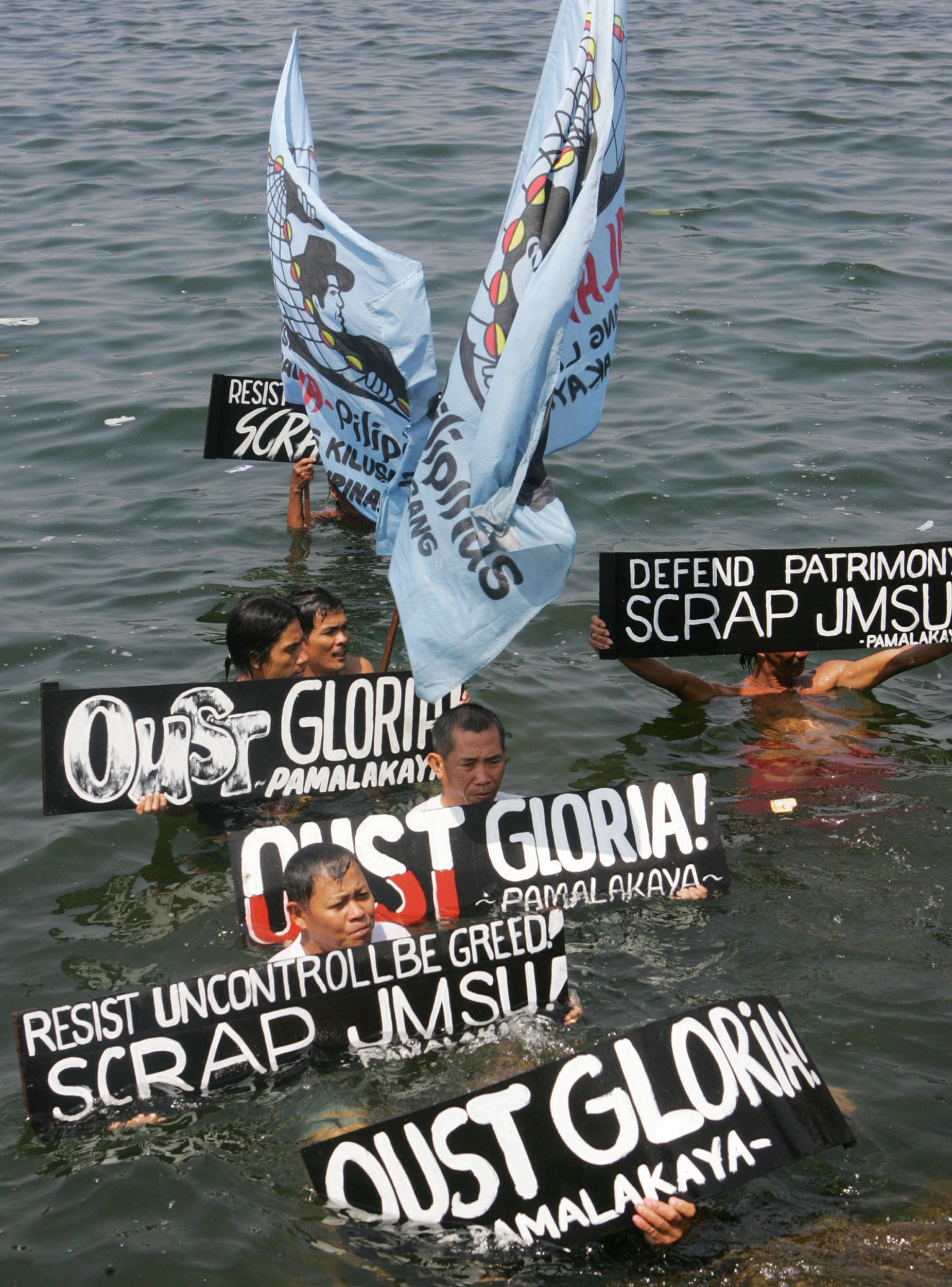
Another example was the 2005 Joint Marine Seismic Undertaking (JMSU) between the national oil companies of the Philippines, China, and Vietnam. Like Duterte and Trillanes, then president Gloria Macapagal Arroyo was accused of treason and selling out the country’s maritime interests. Under public pressure, Arroyo, now a member of Congress, aborted the tripartite undertaking in 2008.
Last year, in a move that is likely to complicate any attempt at joint petroleum exploitation in the disputed sea, the country’s Supreme Court ruled that the JMSU deal was unconstitutional. The ruling came as Manila explored modalities to tap its offshore oil and gas reserves in the West Philippine Sea. Such antecedents do not bode well in projecting the country as a time-honoured actor with an institutional character that keeps past well-intentioned commitments negotiated in good faith.
The uproar triggered by the “gentleman’s agreement” and similar past undertakings may make Filipino leaders less keen to explore provisional, pragmatic, or functional arrangements in the South China Sea, knowing this can be politicised at home. It is not for lack of creativity or innovation, but fears of political backlash that may drive politicians to avoid possible controversy. This means the Philippines will not be a trailblazer or initiator on this front.
Furthermore, the longevity or endurance of compromise or attempts at compromise, especially those born out of temporary accommodation, is short and can be subjected to intense domestic scrutiny and contestation.
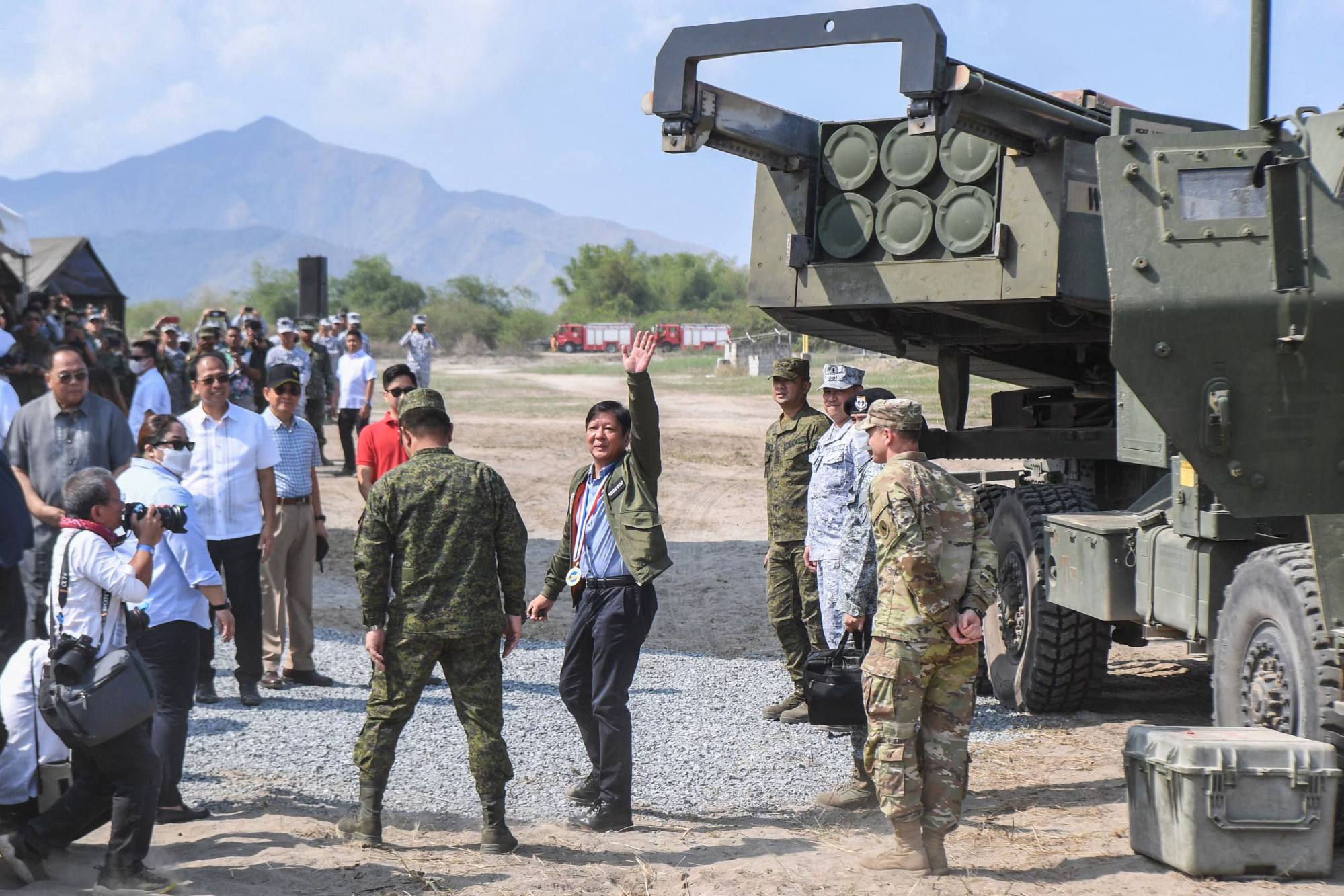
The prevailing diplomacy deficit, including the dearth of high-level dialogue between Manila and Beijing, is raising the spectre of accidents in the South China Sea.
To the extent that direct talks help defuse tensions without parties necessarily giving up their respective claims, the “gentleman’s agreement” can be credited for lowering the temperature in a now searing flashpoint. That it eroded Manila’s position in the hotspot is countered by the fact that the country made unprecedented infrastructure upgrades in its administered features in the Spratlys and invested in modernising its military and coastguard under Duterte’s watch, all the while keeping cordial ties with the country’s largest trade partner.
The gathering storm in the South China Sea figured in the recent call by US President Joe Biden, who will stand for election in November, and China’s President Xi Jinping. Despite escalating rivalry, both great powers maintain high-level contact and exchanged official visits. This sends a subtle message to Manila that “if you are not on the table, you are on the menu”.
Lucio Blanco Pitlo III is a research fellow at the Asia-Pacific Pathways to Progress Foundation.


